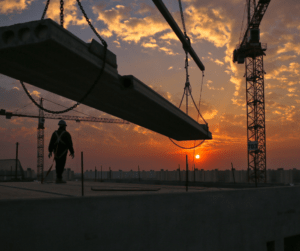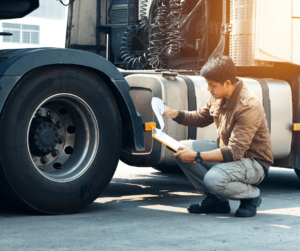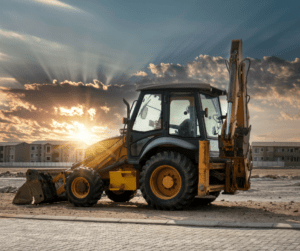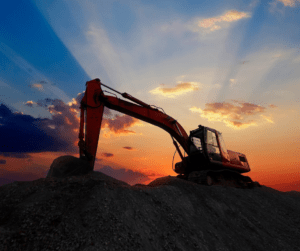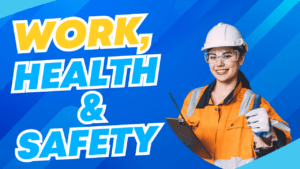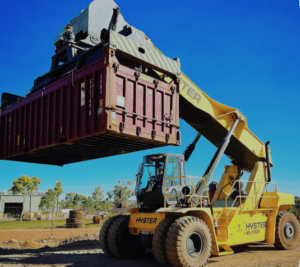
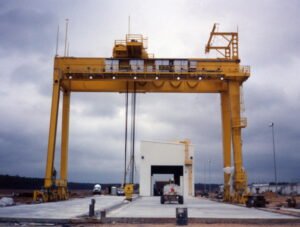
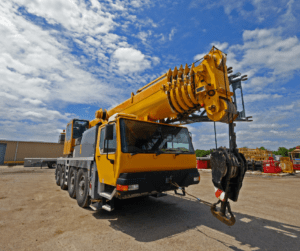
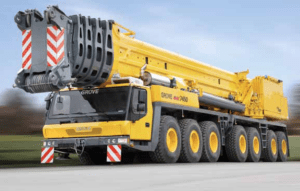
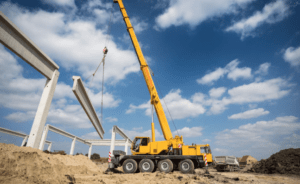
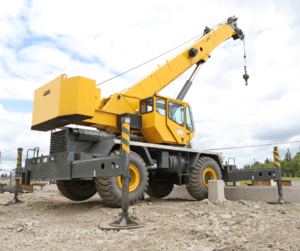
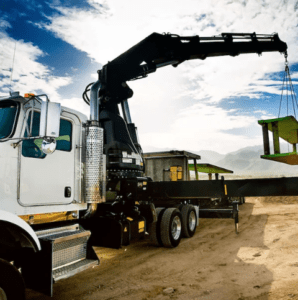
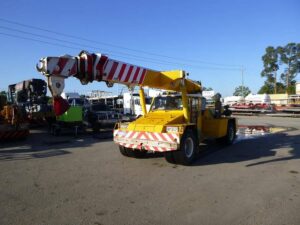
AOTA Crane Operator Training
AOTA (All Onsite Training and Assessment) offers comprehensive crane operator training courses for various types of cranes.
This unit specifies the skills and knowledge required to operate a reach stacker with a Maximum Rated Capacity (MRC) exceeding 3 tonnes safely, in accordance with all relevant legislative responsibilities. Competence in this unit, does not in itself result in a HRWL licence to operate this plant.
Reach stacker means a powered reach stacker that incorporates an attachment for lifting and lowering a shipping container.
This unit applies to the activities of a person operating a reach stacker greater than 3 tonnes capacity that incorporates an attachment for lifting, moving and travelling with a shipping container (not including a shore based container handling gantry crane).
A person performing this work is required to hold a reach stacker High-Risk Work Licence (HRWL)
This unit requires a person operating reach stacker with an MRC exceeding 3 tonnes to:
- plan the work/task
- prepare for the work/task
- perform work/task
- Pack up
This unit specifies the skills and knowledge required to operate bridge cranes and gantry cranes safely. Competence in this unit, does not in itself result in a High-Risk Work Licence (HRWL) to operate this plant.
Bridge crane means a crane that:
- consists of a bridge beam or beams, that are mounted to end carriages at each end, and
- can travel along elevated runways, and
- has one or more hoisting mechanisms arranged to traverse across the bridge.
Gantry crane means a crane that:
- consists of a bridge beam or beams supported at one or both ends by legs mounted to end carriages, and
- can travel on supporting surfaces or deck levels, whether fixed or not, and
- has a crab with one or more hoisting units arranged to travel across the bridge
This unit applies to the activities of a person operating a bridge crane or gantry crane that is:
- controlled from a permanent cabin or control station on the crane, or
- remotely controlled and having more than three powered operations.
A person performing this work is required to hold a bridge and gantry crane HRWL.
This unit requires a person operating a bridge crane or gantry crane to:
-
- plan for the work/task
- prepare for the work/task
- perform work/task
- pack up.
This unit specifies the skills and knowledge required to safely operate a slewing mobile crane with a Maximum Rated Capacity (MRC) over 100 tonnes in accordance with all relevant legislative responsibilities. Competence in this unit, does not in itself result in a High-Risk Work Licence (HRWL) to operate this plant.
Slewing mobile crane means a mobile crane incorporating a boom or jib that can be slewed, but does not include:
- a front-end loader, or
- a backhoe, or
- an excavator, or
- other earth moving equipment, when configured for crane operation.
A person performing this work is required to hold a slewing mobile crane with an MRC over 100 tonnes HRWL.
This unit requires a person operating a slewing mobile crane with an MRC over 100 tonnes to:
- plan for the work/task
- prepare for the work/task
- perform work/task
- pack up.
This unit specifies the skills and knowledge required to safely operate a slewing mobile crane with a Maximum Rated Capacity (MRC) up to 100 tonnes, in accordance with all relevant legislative responsibilities. Competence in this unit, does not in itself result in a High-Risk Work Licence (HRWL) to operate this plant.
Slewing mobile crane means a mobile crane incorporating a boom or jib that can be slewed, but does not include:
- a front-end loader, or
- a backhoe, or
- an excavator, or
- other earth moving equipment, when configured for crane operation.
A person performing this work is required to hold a slewing mobile crane with an MRC up to 100 tonnes HRWL.
This unit requires a person operating a slewing mobile crane with an MRC up to 100 tonnes to:
-
- plan for the work/task
- prepare for the work/task
- perform work/task
- pack up.
This unit specifies the skills and knowledge required to safely operate a slewing mobile crane with a Maximum Rated Capacity (MRC) up to 20 tonnes in accordance with all relevant legislative responsibilities. Competence in this unit, does not in itself result in a High-Risk Work Licence (HRWL) to operate this plant.
Slewing mobile crane means a mobile crane incorporating a boom or jib that can be slewed, but does not include:
- a front-end loader, or
- a backhoe, or
- an excavator, or
- other earth moving equipment, when configured for crane operation.
A person performing this work is required to hold a slewing mobile crane with a MRC up to 20 tonnes HRWL.
This unit requires a person operating a slewing mobile crane with an MRC up to 20 tonnes to:
- plan for the work/task
- prepare for the work/task
- perform work/task
- pack up.
This unit specifies the skills and knowledge required to safely operate a vehicle loading crane with a Maximum Rated Capacity (MRC) of 10 metre tonnes or more. Competence in this unit, does not in itself result in a High-Risk Work Licence (HRWL) to operate this plant.
Vehicle loading crane means a crane mounted on a vehicle for loading and unloading the vehicle.
A person performing this work is required to hold a vehicle loading crane HRWL.
This unit requires a person operating a slewing vehicle loading crane with a MRC of 10 metre tonnes or more to:
- plan for the work/task
- prepare for the work/task
- perform work/task
- pack up.
This unit specifies the skills and knowledge required to operate a non-slewing mobile crane with a Rated Capacity (RC) exceeding three tonnes safely, in accordance with all relevant legislative responsibilities. Competence in this unit, does not in itself result in a High Risk Work Licence (HRWL) to operate this plant. Competence in this unit does not allow for driving an articulated mobile crane on a main or public road. In order to drive on a main or public road, a valid heavy vehicle licence, issued by a transport regulator, is required.
Non-slewing mobile crane means a mobile crane incorporating a boom or jib that cannot be slewed, and includes:
- an articulated mobile crane
- a locomotive crane
- but does not include vehicle tow trucks.
A person performing this work is required to hold a non-slewing mobile crane HRWL.
This unit requires a person operating non-slewing mobile crane with an RC exceeding three tonnes to:
- plan the work/task
- prepare for the work/task
- perform work/task
- prepare to drive an articulated mobile crane on road
- drive an articulated mobile crane
- pack up.
